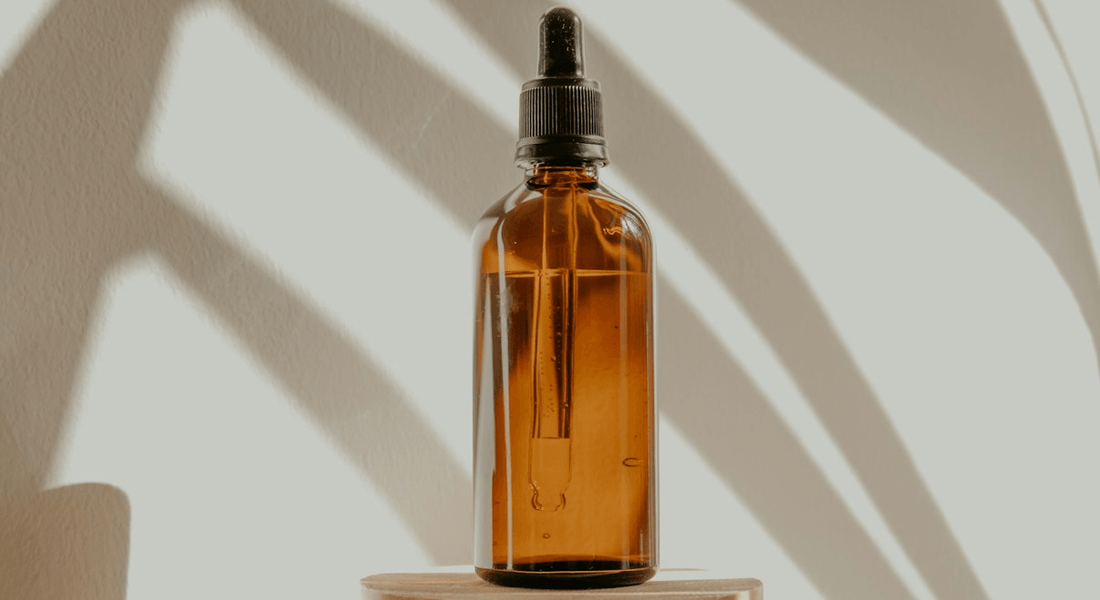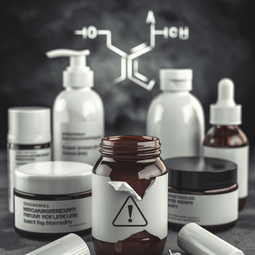Synthetic Fragrance vs. Essential Oils: Which Is Better for Your Skincare?
On
16/11/2024Reading time:
0 min
Summary:
Fragrance is a significant aspect of skincare products, often influencing our buying choices and overall experience. When it comes to choosing a fragranced product, consumers face two primary options: synthetic fragrances and essential oils. While both provide a pleasing scent, they differ in origin, effects, and potential benefits or drawbacks. This article compares synthetic fragrances and essential oils, offering a balanced perspective to help you decide which is best for your skincare routine.

What Is Synthetic Fragrance?
Synthetic fragrance is created in a laboratory and consists of a combination of aroma chemicals, some of which may be naturally derived but many of which are manufactured. Synthetic fragrances are formulated to replicate specific scents, and they are typically more stable, long-lasting, and consistent than natural scents.
Pros of Synthetic Fragrance
Consistency: Synthetic fragrances are formulated to be consistent from batch to batch, meaning that every product has the same scent profile, which can be challenging to achieve with natural oils.
Variety of Scents: Synthetic fragrances allow for a wider variety of scent profiles, from floral to gourmand and beyond, including complex and unique scents that don’t exist in nature.
Long-Lasting: Synthetic fragrances are designed to linger on the skin or in the air longer than essential oils, making them more effective for long-lasting scent.
Cons of Synthetic Fragrance
Potential Allergens: Synthetic fragrances can contain allergens or irritants, including phthalates, which may cause skin irritation in sensitive individuals.
Lack of Therapeutic Benefits: Unlike essential oils, synthetic fragrances don’t contain the complex compounds that offer aromatherapeutic or skin benefits.
Environmental Concerns: Some synthetic fragrances are derived from petrochemicals and may not biodegrade easily, posing potential environmental concerns.
What Are Essential Oils?
Essential oils are natural extracts derived from plants, capturing the aromatic compounds responsible for their scent. These oils are often obtained through steam distillation, cold pressing, or solvent extraction. Essential oils have been used for centuries not only for their fragrances but also for their therapeutic properties.
Pros of Essential Oils
Natural Composition: Essential oils are naturally derived from plants, making them a popular choice for those seeking “clean” or natural beauty products.
Potential Skin Benefits: Many essential oils have properties that can benefit the skin, such as tea tree oil for acne, lavender oil for calming, and rosehip oil for hydration.
Aromatherapy Effects: Essential oils contain complex chemical compounds that can offer aromatherapy benefits, potentially promoting relaxation, focus, or stress relief.
Cons of Essential Oils
Potential for Sensitization: Essential oils can cause skin irritation or sensitization, especially when used in high concentrations or with sensitive skin types. Oils like citrus and peppermint can be especially reactive.
Photosensitivity: Some essential oils, especially citrus-based ones, can make the skin more sensitive to sunlight, increasing the risk of sunburn and pigmentation.
Inconsistent Quality: The composition of essential oils can vary based on factors like climate, soil, and plant species, leading to potential inconsistencies in scent and efficacy.

Which Should You Choose?
The decision between synthetic fragrances and essential oils depends on your skin type, lifestyle, and personal preferences. Here’s a guide to help you make the right choice:
When to Choose Synthetic Fragrances
Consistency and Longevity: If you’re looking for a consistent, long-lasting scent that remains the same with every product use, synthetic fragrance may be ideal.
Avoiding Essential Oil Sensitivity: Some people find essential oils irritating or sensitizing; synthetic fragrances may be easier to tolerate.
Unique Scent Preferences: If you enjoy complex, unique scents (like gourmand or fantasy fragrances) that don’t naturally exist, synthetic options will have a broader variety.
When to Choose Essential Oils
Preference for Natural Ingredients: If you’re committed to natural or clean beauty, essential oils align with these principles, especially in formulations free of synthetic additives.
Therapeutic Benefits: Essential oils offer aromatherapy and some skincare benefits, which can enhance your routine. For example, lavender oil can be soothing, while tea tree oil offers antibacterial benefits.
Sensitive Skin with No Allergies to Oils: Those with sensitive skin who tolerate natural oils well may prefer essential oils for a gentler, natural approach, though caution should still be taken with certain types like citrus oils.
Conclusion: Balance is Key
Both synthetic fragrances and essential oils have their place in skincare, with unique advantages and drawbacks. Synthetic fragrances offer consistency, variety, and longevity, making them a good choice for those seeking a stable, long-lasting scent. On the other hand, essential oils bring natural complexity, potential skin benefits, and aromatherapeutic properties, appealing to those who prioritize natural ingredients.
Ultimately, the choice depends on your personal preferences, skin type, and skincare goals. Many people find a balance between the two by using products that incorporate safe synthetic fragrances or well-diluted essential oils. By understanding the characteristics of each, you can make informed choices that fit your lifestyle and skin needs.

